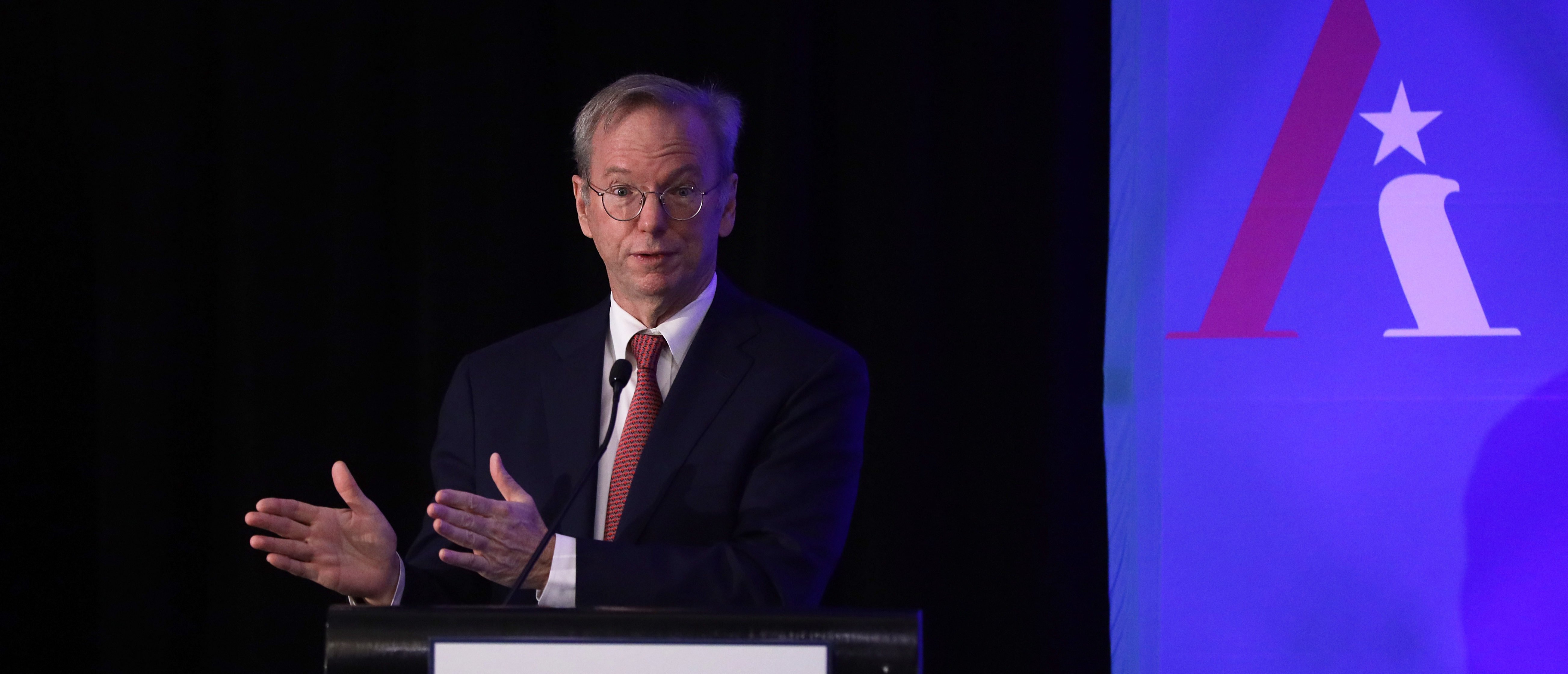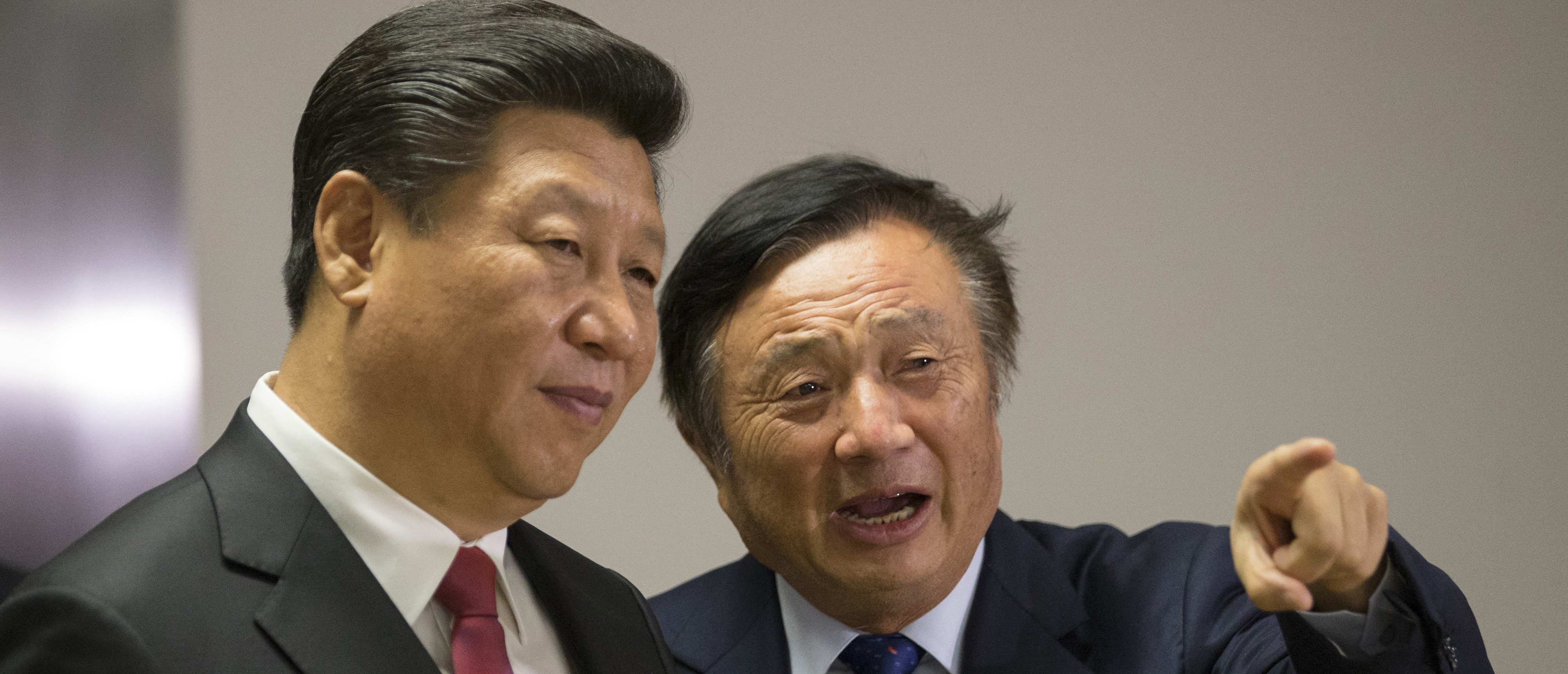Eric Schmidt, who served as chief executive of Google and Alphabet Inc., said in a Thursday interview with BBC that Chinese tech giant Huawei engaged in unacceptable acts and poses a threat to national security.
Speaking with BBC Radio 4, Schmidt said that the company behaves like a “signal intelligence” entity, a reference to intelligence agencies like the National Security Agency (NSA) that send data to governments. “There’s no question that information from Huawei routers has ultimately ended up in hands that would appear to be the state,” he added.

Eric Schmidt speaks during a National Security Commission on Artificial Intelligence conference (Alex Wong/Getty Images)
Schmidt is currently the chairman of the Pentagon’s Defense Innovation Board, which advises the Department of Defense on technology and security matters. He stated in the interview that the United States and other countries need to compete with China and its growing technological capabilities, BBC News reported.
Huawei has come under fire for its alleged links to the Chinese Communist Party. A report released last year found that Huawei staff worked with China’s Ministry of State Security and collaborated with the People’s Liberation Army on defense initiatives. (RELATED: Rep. Mike Gallagher Explains The Massive Spying Threat Posed By This Chinese Company)
The U.S. has taken steps to block Huawei from accessing American-made technologies such as computer chips and semiconductors. The U.K. is also reviewing whether Huawei should be allowed to build 5G mobile networks in the country.
Huawei Vice President Victor Zhang denounced Schmidt’s comments and denied allegations that the tech company is linked to the Chinese government. “The allegations made by Eric Schmidt, who now works for the US government, are simply not true and as with similar assertions in the past, are not backed by evidence,” he told CNBC.

Chinese President Xi Jinping (L) with Huawei CEO Ren Zhengfei (R) at a conference (Matthew Lloyd/AFP via Getty Images)
Google and its parent company Alphabet, which Schmidt helped lead for nearly two decades, has also come under fire for cooperating with China. Schmidt previously supported Project Dragonfly, a project that would have helped China build a censored search engine, CNBC reported. Google ultimately nixed the project and began moving assets out of China in 2019.
Schmidt added that the West can better compete with Chinese companies by investing more in research and development, collaborating with the private sector, and attracting workers from around to the world to the U.S.
The BBC Radio 4 interview is part of The New Tech Cold War, a documentary that will air next week.












